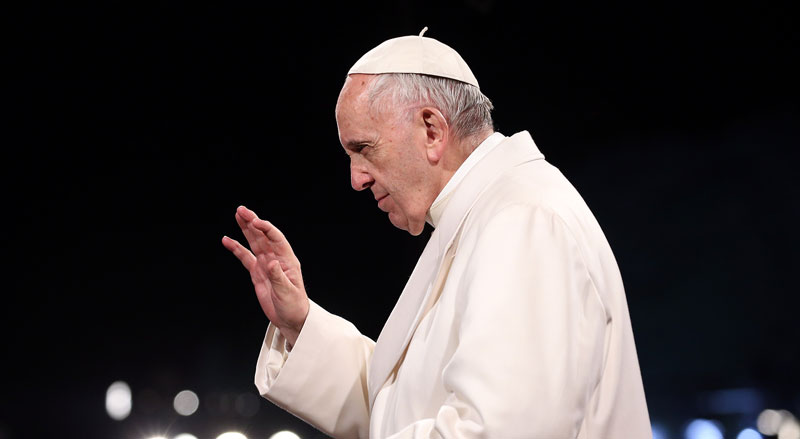
Democratic Gubernatorial Candidate Gray Davis
On the surface, Gray Davis — with his immaculately combed hair, preppy suits and almost mannequin-like WASPy demeanor — seems like the Gentile from central casting. Yet it’s likely no statewide candidate today, including California’s two Jewish Senators and gubernatorial rival Jane Harman, has culivated more ties to LA’s Jewish elites than Davis.
This seems odd, but both California’s Democratic Senators are from Northern California, where many Jews are the type who might prefer their pastrami with mayo. There’s no deep-rooted ethnic Jewish politics up north — or the same necessity to appeal to specifically Jewish interests — as there is in the San Fernando Valley or the Westside, which produced such clearly Jewish pols as Congressman Howard Berman and Supervisor Zev Yaroslavsky.
Similarly Harman, who has spent most of her adult life inside the Beltway, represents a South Bay district that has few Jews compared to L.A.’s Westside. She’s closer to the aerospace industry’s lobbyists than traditional Jewish bulwarks like entertainment and apparel. This does not mean that any of these politicians are not reliably pro-Israel — they assuredly are — but that political necessity has not forced them to run as Jewish candidates per se.
Gray Davis, the WASP from Bronxville and Beverly Hills,on the other hand, has had plenty of reasons, financial and otherwise, to search out Jewish support during his gradual rise to prominence. Back in the late 1970s, as an aide and sometimes unwilling straight-man to the unpredictable Governor Jerry Brown, Davis became acquainted with Brown’s powerful coterie of Jewish political bankrollers like financier S. Jon Kreedman, super-agent Jeff Wald and Eli Broad.The big Democratic political money in Los Angeles Democratic politics , Davis realized, was largely Jewish.
When Davis left Brown to run for Howard Berman’s old Westside Assembly seat, he not only found himself dialing for dollars but for votes in one of California’s most heavily Jewish district. For years, the district, with an electorate roughly one-third Jewish, had been represented by Jewish politicos and now he was the Gentile challenger, attempting to win over not only the big money types, but the more solidly middle class homeowners. As diligent as he is ambitious, Davis made it his job to become the Gentile champion of the Jews. He schooled himself on the critical issues such as Israel and Soviet Jewry. Although nominally a liberal, he was sensitive and often hardline in areas of concern to Jews, such as crime. He won easily.
Understanding the quid pro quo that dominates big-time politics, Davis also made a point of showing his face at Jewish events — at the Federation, at countless bar mitzvahs, even at High Holy Day services. Nor did the bond break when he was elected Controller in 1986; he retained his 1000 square foot apartment in heavily Jewish West Hollywood that he shares with his wife Sharon. Among the first issues he tackled in office was forcing Calpers, the state’s huge pension fund , to reverse its policy against purchasing Israel Bonds.
I’ve known Gray Davis for nearly a quarter century and, to be honest, it’s hard to know how much of his Judeophilia constitutes pure calculation and how much is deeply felt. Those close to him insist Davis genuinely identifies with Jewish culture and looks toward rabbis for moral decisions. But this is no political neophyte or idealist. After all, this is the same guy who skewered Dianne Feinstein, California’s premier Jewish politician, in the 1992 Senate Primary by comparing her to the felon Leona Helmsley. The fact that he has been able this time around to criticize free-spending rival Al Checchi’s attack politics and so reinvent himself as an “above it” statesman is just one of the many ironies of this bizarre campaign.
Davis’ personal and political connections have economic consequences for Jewish interests, precisely the kind of people who bankroll campaigns. When former Labor Secretary Robert Reich’s henchmen went on a jihad against LA apparel companies after the discovery of enslaved workers in El Monte, Davis was one of the few voices interested in finding equitable ways to save this important industry, not destroy it.
“It’s an important industry that generates a lot of entry level jobs,” Davis explains. “Sure, there’s a seamy underside, but it adds to the glamour and prestige of LA. It’s been everyone’s favorite whipping boy. I don’t think that’s justified.”
All this might seem a little odd coming from the candidate who has been characterized — with some justification — as the bought man of organized labor in this year’s race. But Gray Davis has always been ready to tailor his allegiances in order to climb the greasy pole. The difference is that, more than any contemporary California politician, he has recognized that Jewish voters, and even more so Jewish money, can be a useful asset in his ascent.
Joel Kotkin is a senior fellow with the Pepperdine Institute for Public Policy and a research fellow in urban studies at the Reason Foundation. He is a Contributing Columnist to the Jewish Journal. The views expressed in this column are his own and not necessarily those of this newspaper.






















 More news and opinions than at a Shabbat dinner, right in your inbox.
More news and opinions than at a Shabbat dinner, right in your inbox.